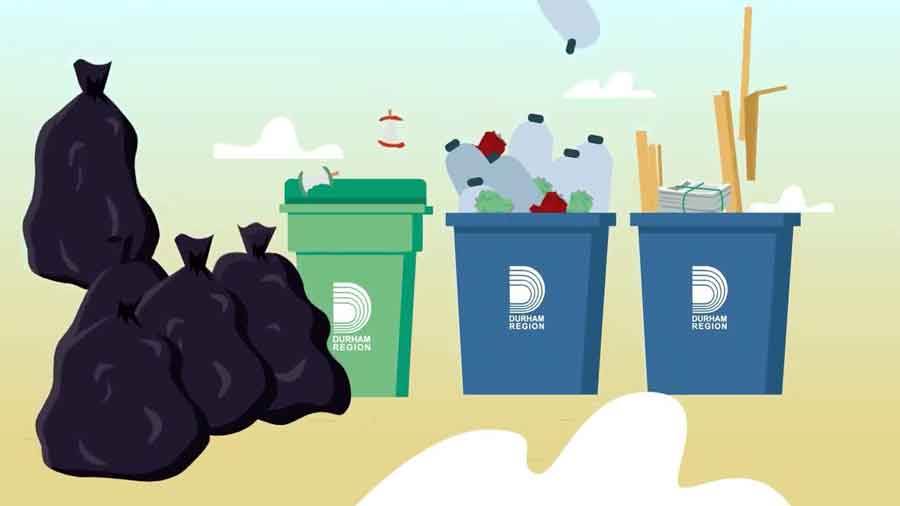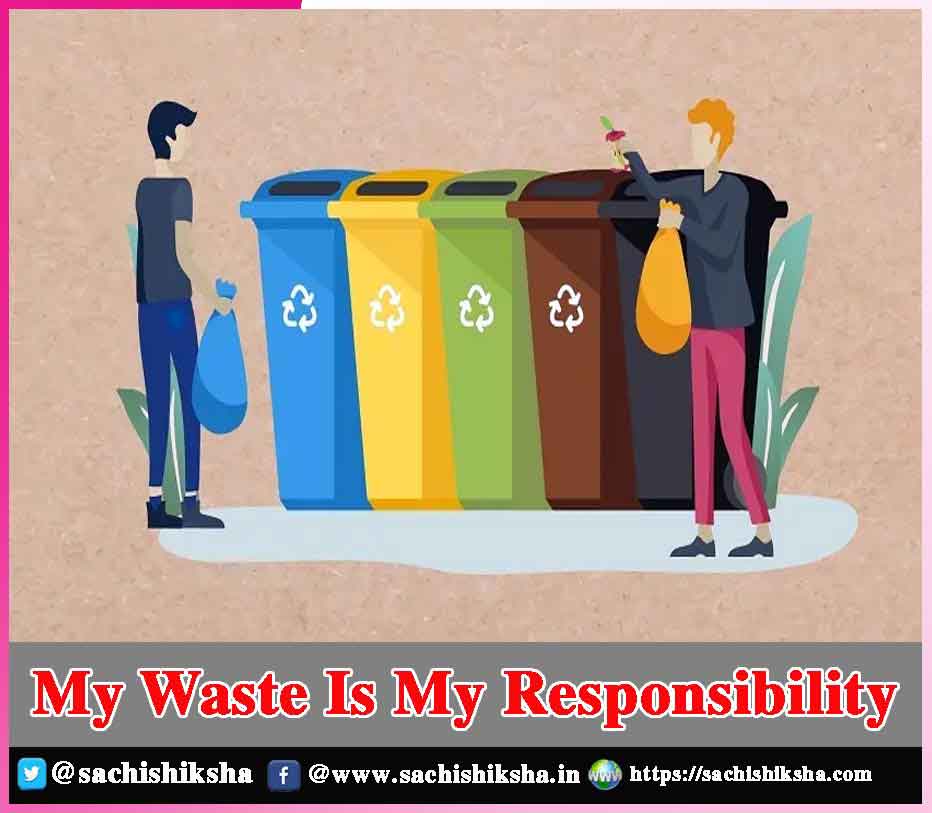My Waste Is My Responsibility
Introduction: “My waste is my responsibility” is becoming a trending slogan in recent times. Many non profit organisations, government schemes and cleaning initiatives undertaken by local bodies have adopted this phrase as their motto. With the growth of technology and science, the amount of waste too is increasing.
Large quantities of garbage are not properly disposed and as a result, it ends up polluting and damaging lakes, rivers, agricultural land and other water bodies. This also leads to a rapid increase in the growth of mosquitoes thereby increasing the risk of sicknesses such as dengue and malaria.
The only solution to all the problems related to waste is managing its disposal in a correct and efficient way. Each and every person should take the responsibility to properly discard their own waste.
Also Read:
- Best Out of Waste
- Best Out of Waste DIY Crafts Ideas: Build Useful Things Easily [Pro Tips]
- Utilize Waste Things
- Waste Tackle With Haste
- My Waste My Responsibility
Table of Contents
Significant Increase in Waste generation:

As per reports, it’s estimated to expect a significant increase by 19% of the current value of waste generated by 2050. The reason for a vast increase in waste generation is due to rapid population growth, economic growth, urbanization, consumer shopping habits, increase in the use of electronic gadgets and changing them often and scrap page of vehicles.
There are different types of wastes such as organic waste, industrial waste, domestic waste, recyclable waste, hazardous waste, e-waste, clinical waste, construction and demolition waste etc. which gets either dumped in landfills or released into water bodies every day. The improper disposal of electronic products leads to the possibility of damaging the environment. When e-waste is dumped in landfills its exposure to environmental toxins is likely to increase, resulting in high risk of cancer and neurological disorders.
Ensure Proper Disposal of Garbage:
People who live close to garbage disposal sites go through a lot of discomfort due to the rotting smell and are affected by medical conditions such as asthma, cholera, tuberculosis and other skin and respiratory related diseases. Landfills are a heaven for flies and mosquitoes, and can contaminate groundwater, leading to deadly infections. This rapid growth in waste accumulation will eventually pollute waterways, harm marine life, make the land barren, increase air pollution, impact the climate and ruin the environment.
As per reports, it’s estimated that solid waste treatment generates 83% of the total greenhouse gas emissions. Our oceans are becoming suffocated by plastic garbage, which accounts for 90% of marine litter. The production of methane from the anaerobic degradation of trash in landfills and the release of nitrous oxide from solid waste, making it directly contribute to the greenhouse gas emissions which is very harmful. In order to overcome the obstacles and restore the world for a better tomorrow we should take the responsibility of our own waste by sorting them out in a proper manner before disposal thereby reducing the amount of looming landfills.
Waste Management Initiatives:
Many countries have introduced waste management initiatives to educate the public on how to dispose their waste. Instructions are issued at various levels starting from households to big industrial plants on effective waste disposal. Household wastes are advised to be separated into wet and dry forms in separate bins before disposal. All of the kitchen waste we generate is wet waste.
This can include fruit waste, leftovers, peels from vegetables, etc. This organic trash is compostable and biodegradable. Paper, cardboard, rubber, polystyrene foam, metal, glass, plastic etc. are all examples of dry waste. Dry garbage is recyclable. In many places lawbreakers are fined so as to set an example for others to dispose their waste in a correct manner. We’re assisting in upgrading the quality of the air and water as well as lowering greenhouse gas emissions by correctly sorting recycling from trash and compost. When waste is sorted properly, the amount of garbage piling up at the landfills reduces and more of what we discard can be recycled and reused.
Swachh Bharat Abhiyan:
The government of India too has initiated Swachh Bharat Abhiyan, or Clean India Mission, a country-wide campaign with a mission to improve solid waste management and to clean the streets, roads and infrastructure of the country. The United Nations, also has introduced a number of programmes globally on proper waste management and helps underdeveloped countries to dispose their waste in a correct manner.
One such initiative is the Global Waste Management Outlook, a joint project of the United Nations Environment Programme and the International Waste Management Association to develop a global outlook of challenges, trends and policies in relation to waste prevention and its minimization and management. Community clean-up campaigns are a must for today’s society. It encourages and offers the residents an opportunity to fix up and conserve our environment. Educational institutions too should take initiatives to enlighten students on the necessity of taking care of disposing their own waste thus making them responsible future citizens.
Conclusion:
India generates nearly 62 million tonnes of trash annually, the majority of which is generated by households. We should not only properly dispose the waste generated at home but also learn to use public dustbins at places like beaches and parks and avoid littering the ecosystem. To put an end to the great harm caused to mankind by the accumulation of garbage, governments have devised systematic plans and initiatives like setting up recycle plants, developing methods to manage residues,
setting up factories to produce organic fertilizer from the organic waste generated at household and farms, safe disposal of hazardous wastes and to achieve the target of collecting garbage from every locality. Being responsible towards the correct disposal of garbage helps our country to achieve development and ensures a healthy future for the next generation as well. As the saying goes it takes two hands to clap and produce a sound, therefore it’s not only the duty of the governing bodies, but also our duty as responsible citizens to dispose waste properly.













































